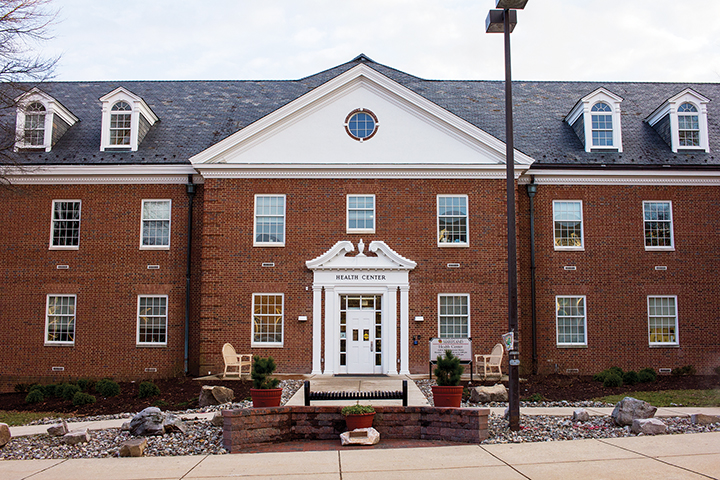At a town hall Thursday, panelists addressed student concerns about birth control, including what options the University of Maryland Health Center offers.
The event, called “Take Control: A Birth Control Town Hall,” drew about 65 students to the Margaret Brent Room in Stamp Student Union.
The town hall comes after President Trump rolled back an Obama-era birth control mandate earlier this month. Under the mandate — which was part of the Affordable Care Act — employers were required to cover birth control in their health insurance plans.
Senior cell biology and genetics major Tianna Solomon said she had to switch from her preferred method of birth control because of the Trump administration’s rollback.
[Read more: Maryland legislature passes bill allowing over-the-counter birth control]
“Having a birth control that’s most effective for me and is affordable and also has less symptoms is something that I can work with,” Solomon said. “Switching because of my insurance — that is a huge transition, and I feel as though no woman should have to go through that.”
The town hall, which featured panelists from this university’s Health Center and the Montgomery County Department of Health and Human Services, was co-sponsored by the Residence Hall Association, this university’s branch of the American Association of University Women, the Panhellenic Association and student organization No Taboo. Period.
Each panelist was selected for her expertise in educating and administering birth control to young adults, said Ro Nambiar, the event’s organizer and moderator.
“Birth control can be kind of a scary subject,” said Nambiar, the Student Government Association health and wellness director. “I want people to know that they can come to myself or to the SGA Health and Wellness Committee, we are advocates for students.”
Panelist Jenna Beckwith said an abundance of sexual health resources are offered to students on the campus.
[Read more: More women are asking about IUDs and implants at the UMD Health Center since the election]
There is no single best option of birth control, said Beckwith, a sexual health program coordinator at the health center. She added that a woman’s lifestyle and behavioral traits should determine her own preference.
Diane Orth, a nurse practitioner at the health center, guided the audience through the different methods of birth control available to students through the health center.
There are seven different methods of birth control offered at this university’s Health Center, according to its website — the pill, the patch, the ring, diaphragms, condoms, emergency contraceptive pills and intrauterine devices. The panelists also discussed an eighth method of birth control this university offers, an implant — Nexplanon — not listed on the health website.
“It’s such a personal decision, and really our role is to provide the facts,” Orth said.
The cost of each method varies depending upon students’ health care coverage, Nambiar said.
Student representatives from the AAUW also reminded the attendees that the Plan B One-Step pill, an emergency contraceptive, is now available at the 24 Shop on North Campus and the Commons Shop on South Campus for a discounted price of $15.
“If you walk away with anything, just know there are a lot of different options available to you,” Beckwith said.
The SGA’s Health and Wellness Committee will host more interactive events on other specific health-related topics including a self defense workshop on Nov. 9.
Sophomore women’s studies major Frieda Greenthal said the town hall was important for students.
“This conversation doesn’t exist very often or in very many spaces on campus,” Greenthal said. “It’s important to make talking about these things more comfortable.”
CORRECTION: Due to a reporting error, a previous version of this story incorrectly stated that Plan B is available at all campus convenience stores. It is only available at the 24 Shop on North Campus and the Commons Shop. This story has been updated.



